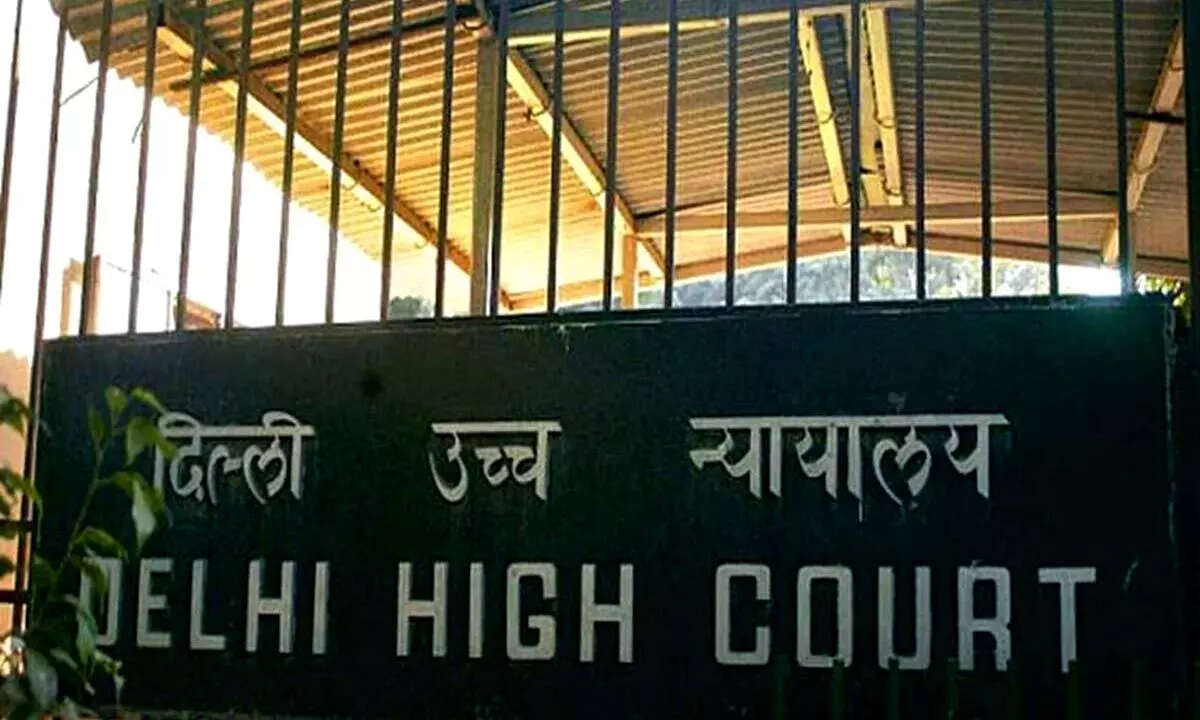Live
- Second phase randomization of EVMs is complete
- BJP confusing Matua voters though CAA notification: Mamata Banerjee
- IPL 2024: LSG might have to play the rest of the event without Mayank Yadav, says coach Justin Langer
- Two killed after colliding with a parked lorry
- PCB identifies the April 7- May 20 window for PSL 2025; to clash with IPL’s next season
- Viksit Bharat Ambassador event: Sri Sri Ravi Shankar heaps praise on PM Modi for Kashi facelift
- Women’s Hockey League: Haryana, Madhya Pradesh win on Day 5
- Indian Americans caution US university on demand to display 'flag of Kashmir'
- YS Sharmila worried over 'mental state' of brother Jagan
- PM Modi prays at Kanpur gurdwara along with CM Yogi
Just In

The Delhi High Court has passed a series of directions for effective and strict implementation of the Pre-Conception and Pre-Natal Diagnostic Techniques Act, 1994 (PCPNDT Act).
New Delhi: The Delhi High Court has passed a series of directions for effective and strict implementation of the Pre-Conception and Pre-Natal Diagnostic Techniques Act, 1994 (PCPNDT Act).
The directives for the authorities were issued by Justice Swarana Kanta Sharma, who noted that abortion of a foetus based on sex-determination is a potent means of continuing gender inequality.
"Sex-determination based abortion is a powerful method of perpetuating gender inequalities. The restriction of access to foetal sex information is directly related to the problem of misogyny, which affects women of all socioeconomic backgrounds not only in this country but globally as well. The purpose of controlling knowledge of sex or gender is to protect expectant women and their unborn child," the judgment stated.
The PCPNDT Act has partially succeeded in creating fear of sex-determination tests, but it has not yet fully addressed the need for a safe womb for female foetuses, which was another issue it attempted to address.
"The offences under this Act, which are proposed to be curbed, give rise to dual violence i.e. against the unborn female child and against the mother by putting her into health danger by forcing them to undergo abortions. Needless to say, a woman will be forced to undergo an abortion in case she has a female child in her womb, only when an illegal sex-determination test is conducted," Justice Sharma noted.
The PCPNDT Act and Rules should, therefore, be made known to the District Appropriate Authorities, Investigation Officers, and Prosecutors in order to inform them of the specific mandatory provisions of Section 28 of the Act and the protocol to be followed in order to ensure that a complaint is filed in accordance with the Act, she said.
Both the Central and State governments must make an effort to ensure that the relevant authorities are clear about their responsibilities and authority in order to ensure effective compliance with the PCPNDT Act's mandate and improved communication among the authorities' officials.
"Training and sensitisation programmes can be organised for the officials who are concerned with the implementation of PCPNDT Act," the judge said.
The court further stated that it would be appropriate to construct online complaint portals and websites in order to inform the public about the process, location, and mechanism for filing such a complaint.
"The constitution of Appropriate Authority, their contact details, including the E-mail Id and phone numbers, where a complaint can be made be also mentioned at specific conspicuous places in all the hospitals and clinics, where the facility for ultrasonography or other pre-natal diagnostic techniques are available or are being carried out, or any other place deemed appropriate by the concerned authorities of Ministry of Health and Family Welfare and Ministry of Law and Justice to ensure that the common person is not misled to file a complaint with an inappropriate authority not competent to ensure action on a complaint."
The court ordered its observations and directions to be placed before the union ministries of law and justice as well as health and family welfare and the Delhi government, Delhi Police and Director (Academics), Delhi Judicial Academy.
"The concerned Ministries/Departments of Central Government and State Government will ensure that such steps are taken, as directed above and compliance is filed within three months," the single-judge ordered.
Justice Sharma issued the directions as she refused to quash an FIR registered against a man named Manoj Krishna Ahuja under several sections of the PCPNDT Act.
The court, however, quashed the cognisance taken by the trial court in absence of any complaint filed by Appropriate Authority under Section 28 of the Act. It held that the same was bad in law.

© 2024 Hyderabad Media House Limited/The Hans India. All rights reserved. Powered by hocalwire.com







